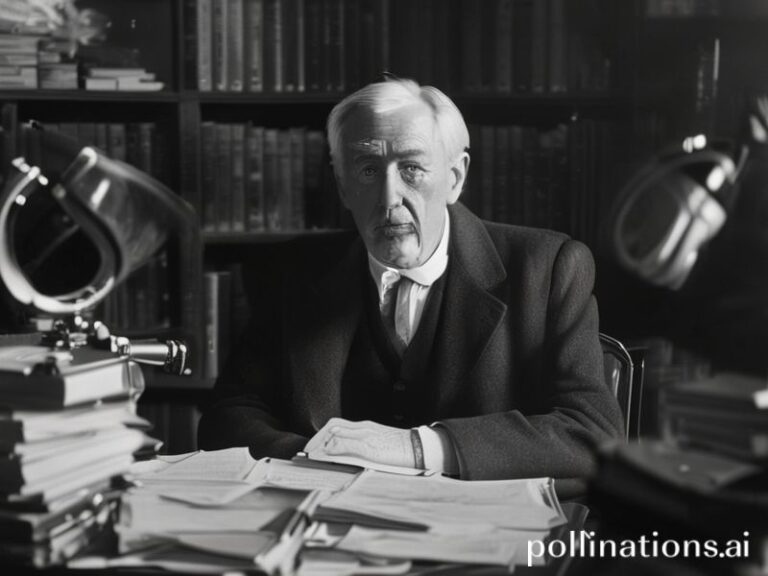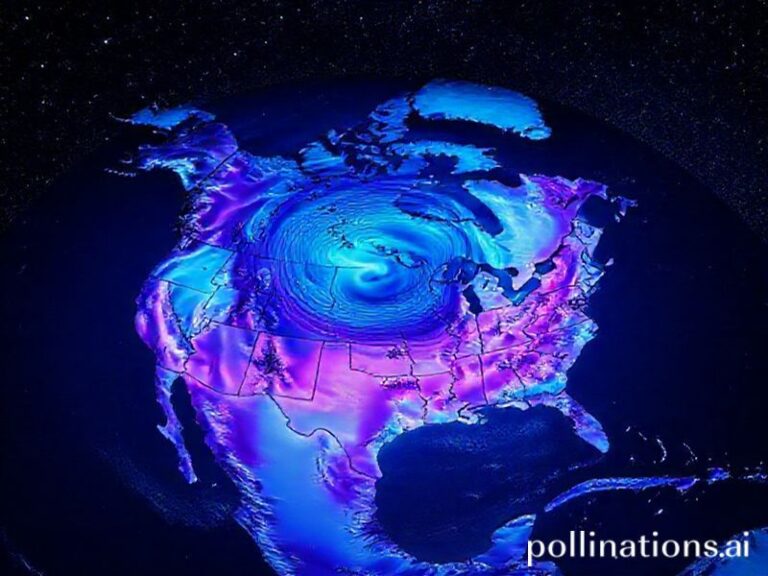Global Prime Obsession: How One Word Became the Passport to Modern Capitalism’s VIP Lounge
The Cult of “Prime” – How One Word Became a Global Status Symbol, Dystopian Membership Card, and Possibly a Religion
They say Latin is dead, but in 2024 the lingua franca of power, convenience, and mild existential dread is a five-letter English word that once merely meant “first in order.” From São Paulo to Seoul, “prime” no longer describes a number divisible only by itself and one; instead it denotes an all-access pass to the theater of modern capitalism, complete with velvet-rope shipping lanes and algorithmic confession booths.
Consider the evidence. Amazon Prime now operates in twenty-three countries, promising next-day arrival of everything from espresso machines to inflatable T-Rex costumes for cats. In India, Prime Video subscribers cheerfully binge “The Boys” while municipal water arrives every third day—an irony so thick you could spread it on naan. Meanwhile, Amazon’s newest Prime Air drone facility in Tijuana is rumored to be close enough to the U.S. border that packages can clear customs while the customer is still muttering, “I probably don’t need this.”
But the word has metastasized well beyond Seattle’s glass biospheres. Japan’s SoftBank offers “Prime Pass,” a bundle of streaming apps for people who find individual subscriptions too plebeian. In Nigeria, fintech startup Kuda markets “Prime Savings,” guaranteeing 15 percent annual interest—roughly the same rate the naira depreciates on a calm Tuesday. Even the Vatican, never one to miss a merchandising beat, now sells “Prime Pilgrim” packages: skip-the-line tours, gluten-free hosts, and a selfie with the Swiss Guard whose halberd doubles as a ring light.
Why does one syllable travel so well? Anthropologists point to the universal human craving for exclusivity without effort. Membership in “prime” removes the friction of choice; it is the IKEA shortcut through the labyrinth of late-stage capitalism. You don’t compare, you click. You don’t deliberate, you default. The customer feels like a minor deity, the corporation pockets the tithe, and somewhere in the South China Sea another cargo ship burns bunker fuel thick enough to butter.
Governments, ever attentive to shiny revenue streams, have begun franchising the word. Brazil’s new “Prime Saúde” program outsources basic diagnostics to telehealth apps; the waiting room is now your own sofa, assuming your sofa hasn’t been repossessed. France—always eager to slap a chic accent on vulgar commerce—has launched “Prime Avenir,” a €200 annual subscription that lets citizens dodge half the paperwork normally required to renew a driver’s license. Libertarians cheer, bureaucrats unionize, and the ghost of Charles de Gaulle files an appeal.
Not everyone is thrilled. In Kenya, riders of the boda-boda motorcycle taxis protest “Prime Routes,” algorithmic lanes that prioritize Amazon-branded vans over blood donations and, occasionally, actual blood. EU regulators mutter about monopolies while simultaneously renewing their own Prime accounts—hypocrisy delivered free with purchase. Meanwhile, Chinese tech giants, barred from the word by trademark lawyers, simply transliterate “prime” into “puleimu,” a sound that, when spoken aloud, eerily resembles the English for “pre-pay your regrets.”
And yet the juggernaut rolls on, powered by the same force that once built cathedrals and colonial railways: the desire to be slightly ahead of the next guy. The global middle class—defined now as anyone who can afford both a smartphone and a recurring charge they forget to cancel—has embraced prime as a secular afterlife. We may not believe in heaven, but we believe in two-day shipping and that is, apparently, close enough.
So toast the new world order with your same-day rosé. The age of “prime” is upon us, equal parts convenience and soft tyranny. Just remember: every empire has its expiration date, usually printed in six-point font on the bottom of the box. Until then, sit back, relax, and enjoy the complimentary decline.







